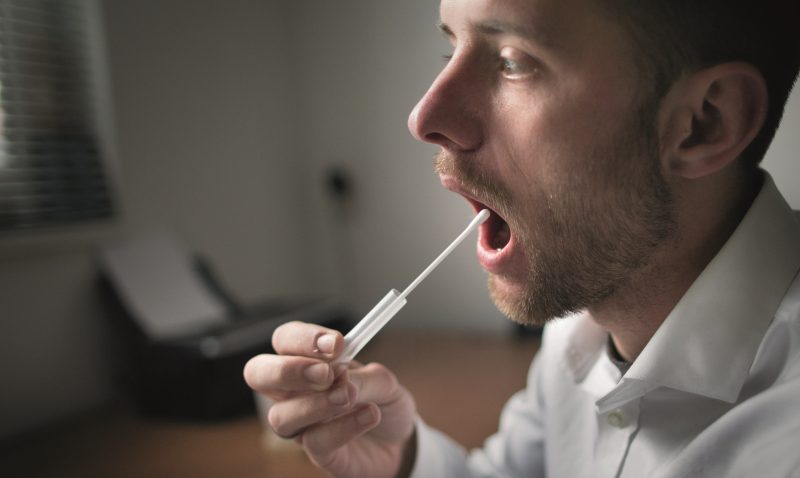Student Sander gives lifestyle advice through DNA test
You only require a few cheek saliva swabs and student entrepreneur Sander Bast tells you if you run the risk of lack of vitamin C, if you are prone to obesity, or if you are sensitive to caffeine. But what can you do with that information? And how trustworthy is such a DNA test?
“Nowadays we want to know everything about our body.” Says fourth years’ student sports management Sander Bast (31). “Each body is different and not all physical problems are treatable with a standard solution. However, this is the current approach in the medical world. But as one reacts well on a certain kind of medicine or diet, it might not be so beneficial to someone else.” A few years ago, Sander discovered 23andme on the Internet, an American company that analyses DNA. “Through this you could easily discover how you react to certain kinds of medicine and on what kind of illnesses you run the risk of getting. The idea of such a test has never let me go.”
Prone to obesity
At the start of this year, Sander started his company Analyse Me, where he (together with a molecular nutritionist) executes personalised DNA analyses for individuals. They did this during the minor entrepreneurship at the University of Applied Science of Amsterdam. With Analyse Me, Sander and his colleague, who wishes to remain anonymous, are first and foremost focused on everyone having a particular interest in health, food and sports. “Our analyses tell you if you have a larger demand for vitamin C, how you react to coffee and if you are predisposed to obesity. Through this information you could start taking vitamin C supplements, or eating food more consciously.” Since the start, Analyse Me has sold around forty reports, each for 149 euros. Sander and his colleague cannot make a living from it yet. Furthermore they immediately put the turnover into the company. “At the moment, we are working with a copywriter who rewrites the texts in the reports that we make for our customers to understand the text easier We received feedback that they are hardly accessible for a layman. Through investments we keep improving our product. In the end I do want to make a living from this company!”
Coffee prior to sporting
In order to get a personalised DNA analysis through Analyse Me, you need to order a DNA-kit online, stroke the included cotton bud along the inside of your cheek, and return it. “We will send this anonymously to a laboratory in Leiden and we will get raw data in return. After that, we interpret the results and through this we form the report, which we will send to our customer.” Naturally, Sander has analysed his own DNA as well. “It told me for example that caffeine improves my sports results. So now I drink a cup of coffee prior to sporting. That might have negative impact on others. For professional athletes, this can even make the difference between a gold and silver medal.”
Predicting Alzheimer
A DNA test does not say anything by far about health and sports results. “DNA is only one part of your life. How you live, what you eat and how your bowels react also have an influence.” Besides, more than one gene plays a part in the development of a certain ability. “Many illnesses are difficult to predict at the moment, because of all the factors that are present, both outside and within DNA. Besides, the law does not make it easy to make a medical diagnose.” At the moment, Analyse Me works with the genes from which playful information could be extracted. “The adjustments that you could make by our tests are more about fine tuning your lifestyle. But if you make a small adjustment to improve your results, you can feel so much better. Both on the sporting ground and in your everyday life.”
Sceptical
Sander understands that many people are sceptical about DNA analyses. “Although the DNA technology is developing rapidly, much is still to be discovered. After all, the human body is unfathomably complex.” But there are many developments. “There was a message in the American magazine Wired last month, about a man that didn’t have long to live because of kidney cancer. After an analysis of the DNA in his cancer cells, he appeared to have a different kind of the illness than the doctors thought. He was prescribed different medication and now he’s cured! Isn’t that a wonderful use of DNA analysis?”
Janine Sterenborg
